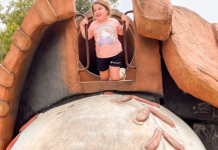When a conflict or difficult situation arises with another person, the idea of solving the problem with a phone call or an in-person talk can feel like a scene from Judith Viorst’s book Alexander and the Terrible Horrible No Good Very Bad Day.
As negotiating is a big part of my job, I realize I tend to have more difficult conversations than most people. However, I have always believed that good communication and frequent talks are the keys to good relationships.
It seems that communicating with other people is similar to going to the gym. Summoning enough energy to make it to the gym can be extremely difficult, but when you finally make it there, you wonder why it took you so long to do something so enjoyable. Similarly, having a difficult talk with someone can seem scary, but after having the talk you realize good communication can make you feel better.
 Recently I experienced a situation that made me realize the skill of having difficult in-person talks is not inherent and not practiced by most people. Every morning during the school year, I waited with my five-year-old and seven-year-old boys and several other families at the bus stop in our neighborhood. The bus stop is located in front of a rental property that consistently had multiple cars parked along the street. We typically all waited on the edge of the property because the parked cars prohibited us from standing on the curb.
Recently I experienced a situation that made me realize the skill of having difficult in-person talks is not inherent and not practiced by most people. Every morning during the school year, I waited with my five-year-old and seven-year-old boys and several other families at the bus stop in our neighborhood. The bus stop is located in front of a rental property that consistently had multiple cars parked along the street. We typically all waited on the edge of the property because the parked cars prohibited us from standing on the curb.
One morning, the kids decided to walk along a wooden landscape border surrounding a pine-straw area located close to the road. As the wooden border appeared to be old and of poor quality, we were not surprised when a small section of wood gave way underneath one of the children’s feet.
A few days later the renters of the bus stop property posted a photo of broken wood along with a long message on our neighborhood Facebook page about taking action with the HOA to resolve the damage. My first thought was if the renter was upset, why did he turn to Facebook to solve this problem rather than coming out to the bus stop to ask what had happened? Or since we all live very close to each other he could have walked across the street to ask any one of the parents about the situation.
After seeing this post, I immediately reached out to him. When I met with the renter and his wife in person, they both seemed pleasant. They told me the damage was minor and really wasn’t a big deal. They said the only reason they posted on Facebook was because the owner of the home asked them to. I gave them my contact information and asked for the homeowner to call me so we could pay for any damages. A few days later, the homeowner called and said the cost for a new wood border was only $10. He was not upset at all and didn’t even charge us.
After resolving the whole confusing situation, I began to contemplate how common it is for people to post about issues on Facebook and other social media platforms, like Nextdoor, rather than having face-to-face conversations. In this digital age, is this a trend that will continue? Will online posts become the default for all difficult communications?
Regardless of how this societal trend emerges, I think parents should try to provide their kids with the skills they need to respectfully initiate discussions with others, even if that means having difficult in-person conversations.
Some tips on how to facilitate good communication with your kids:
- Avoid jumping to conclusions. Think of a scenario to act out with your kids where the reason you may be acting a certain way is not obvious.
- Being a good listener. Try communicating to your kids in a way where they need to really listen to understand your intent.
- Showing empathy. Practice empathy with your kids when a difficult situation occurs by thinking about how others may feel.
- Respecting others. When a disagreement occurs between you and your kids teach them how to remain respectful by using dialogue to communicate their feelings.
Our children may feel uncomfortable when learning these skills, but in my opinion our goal as parents shouldn’t be to protect our children from uncomfortable situations, but rather to lovingly prepare our kids for the future, which hopefully is nothing like Alexander’s Horrible No Good Very Bad Day.













